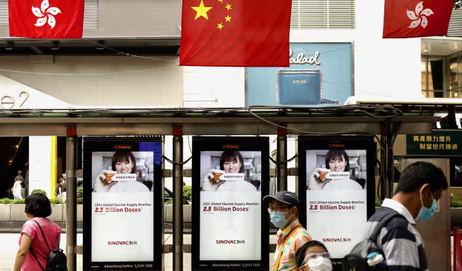Covid-19 Vaccination Options for Mainland Chinese Amid Rising Cases and Relaxed Border Rules
As Covid-19 cases rise across mainland China following the easing of restrictions on December 7, many residents have turned to Macau and Hong Kong for access to mRNA vaccines, which are not available domestically. Despite China’s continued reliance on Sinovac and Sinopharm vaccines—based on older inactivated virus technology—some Chinese citizens are seeking the more widely trusted Pfizer-BioNTech shots, known for their higher efficacy.
Mainland Chinese have been crossing the border into Macau, where they can access the Pfizer-BioNTech vaccine. A resident from Hangzhou reportedly paid US$1,200 (S$1,615) to travel to the Macau University of Science and Technology Hospital for the vaccine, trusting it more due to its proven safety and the availability of information surrounding it. Macau’s Covid Response Coordination Center has confirmed that these visitors are only eligible for the mRNA vaccine targeting the original Covid strain, with appointments available as early as February 2023.
The high demand has led to long wait times for vaccination slots, prompting Macau to open a second vaccination site at Kiang Wu Hospital. The cost for each dose is up to HKD 1,650 (S$284), with no refunds or rescheduling allowed. Macau’s popularity as a vaccination destination stems from its status as the only place outside mainland China where quarantine-free travel is permitted, making it a convenient option for mainlanders seeking the mRNA vaccine.
Meanwhile, Hong Kong has also taken steps to allow visitors to receive the Pfizer-BioNTech vaccine. On December 23, Fosun Pharmaceutical, the distributor of the BioNTech vaccine in China, announced that Hong Kong had granted full regulatory approval to administer the vaccine to visitors. With Hong Kong set to reopen its borders to mainland China in mid-January 2023, many mainland residents, including Shenzhen’s Belle Wu, are eagerly planning to get vaccinated there once quarantine requirements are lifted.
While Chinese authorities continue to avoid foreign-made vaccines, the shift in demand towards mRNA vaccines reflects growing concerns over the efficacy and safety of domestically produced options, especially as the country faces a surge in infections.








